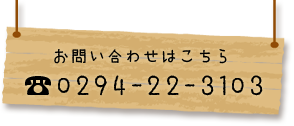Verbal Agreement with Debt Collector
2022年5月16日
Verbal Agreement with Debt Collector: What You Need to Know
Dealing with debt collectors can be a daunting experience, especially when they start pressuring you to make immediate payments. In some cases, you may feel forced to make a verbal agreement with the debt collector just to get them to stop harassing you. However, before you agree to anything, it`s important to understand the implications of a verbal agreement with a debt collector.
What is a Verbal Agreement?
A verbal agreement is a verbal contract between two parties, in this case, you and the debt collector. It`s an agreement that is made based on spoken words rather than a written document. When you make a verbal agreement with a debt collector, you`re essentially giving them permission to collect payments from you based on the terms you`ve agreed on.
Is a Verbal Agreement Legally Binding?
Yes, a verbal agreement is legally binding. In fact, it`s just as valid as a written agreement, although it can be harder to prove in court if you disagree with the terms of the agreement later on. It`s always advisable to get the agreement in writing, but if you`ve already made a verbal agreement, it`s important to keep records of the conversation and any subsequent payments you make.
Understanding the Terms of the Agreement
Before you agree to anything, make sure you understand the terms of the agreement. Debt collectors may use legal jargon that you may not be familiar with, so it`s important to ask questions and clarify any terms you don`t understand. Be sure to get all the terms of the agreement in writing, including the payment schedule, the amount owed, the interest rate (if applicable), and any fees or penalties.
What Happens If You Don`t Keep Your End of the Agreement?
If you fail to make your payments as agreed, the debt collector has the right to take legal action against you. This can include taking you to court, garnishing your wages, or putting a lien on your property. It`s important to keep up with your payments and communicate with the debt collector if you`re experiencing financial difficulties that prevent you from making payments.
Final Thoughts
Verbal agreements with debt collectors can be risky, so it`s important to proceed with caution. As a general rule, it`s always better to get any agreement in writing to avoid any misunderstandings or disagreements later on. If you do make a verbal agreement, make sure you understand the terms and keep records of your payments. Remember, you have the right to negotiate the terms of the agreement, so don`t be afraid to speak up if you feel the terms aren`t fair or reasonable.



